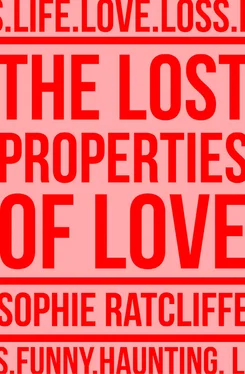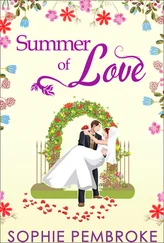Nowadays, Finchley still feels more to me like a place to pass through than a destination. A few months ago, I took a journey down the road to my old house, rounding the corner past West Avenue and Lovers Walk. Everything seemed wider and larger than I recalled, but the quality of silence was still the same. The houses are the same mixture of the dark red of the late eighties and the determined solidity of 1930s mansion flats. I walked along the undulating road, past Chestnut Row with its pollarded trees. The house at the corner of my road has been converted to a care home. Shielded by a high fence, only parts of it are visible from the street. A burgundy awning perches above its door, desperately trying to create the effect of hotel luxury. The strange combination of porticos and extensions and satellite dishes make it feel as if it is about to fall into the road.
Ahead to the left is Lovers Walk, the shortcut up to Ballards Lane. Not much in the way of love ever happened to me there. The closest I came was being flashed at while walking back from Tesco. My road bends to the right, down a shallow hill. It seems much the same. The same green-gated park on the left-hand side. I remember the overwhelming shades of green – conifers – and the slow descent of the road down to the bottom where our house stood, still marked by the leafless silver birch, with its white trunk and electrocuted shock of narrow branches. The road was still quiet, apart from the banging of some builders a few doors up.
There was an ache about the house that I couldn’t put into words but which I remembered from before. Growing up, I understood that our house was steeped in compromise. It was not quite a mistake but felt a place in which we could never truly settle. Every few months, an outing with an estate agent acted as a peculiarly ineffective kind of family therapy. We trooped around other houses, further down the Northern Line, nearer to town. They smelled of polish or mice, or a different kind of pain. But the houses we saw, the ones without net curtains and stucco, were unaffordable. Window shopping over, we were stuck.
Sometimes there were arguments. Quiet arguments. Voices never raised. Tension about money, I think. Holidays. A particularly vivid un-shouting match seemed to be about what shade of beige we should paint the front room, but probably wasn’t. Mostly there was just a sense of things unsaid. My father insisted on long journeys to National Trust stately homes, and I threw up in the back seat.
Once, at the end of one weekend, something happened. Someone was not able to talk. Someone else was angry. The contents of a coffee cup were poured around the kitchen table, like a bizarre midsummer rite. We were packed into the car with suitcases. We drove to my friend’s house where we arrived without warning and were awkwardly made lunch. Our suitcases remained in the hall. When we returned home and walked back into our kitchen, accomplices of this short, failed separation, my father was still standing in front of the square window above the draining board, staring at the revolving washing line and fiddling with the silver tankard full of screwdrivers, as if he’d been there all day. The magic coffee circle had been cleaned up. I watched the raindrops make their way down the glass, breaking off and then joining one another, like companionable tears. Then I went outside and played with the tap, pressing my hand against the pattern of small shiny stones embedded in concrete until it hurt. Nobody felt at home, and there was no hope of anyone going anywhere.
My father was invisibly sick. We all knew he was sick, but I didn’t fully understand why or how or where. Sometimes he was at work, leaving every morning in a suit with a briefcase to do things that had something to do with the Government. Sometimes he left a little later, with a vinyl suitcase packed with pale blue pyjamas, and then he was going to the Big Hospital, and didn’t come back for a while. Once he was there for a very long time. We visited. The Big Hospital corridors unfurled like a medical version of Oz, rising and falling as we walked. Everything smelled of oranges and Pine Harpic. I was allowed to buy a Beatrix Potter cookery book and a stained-glass colouring book on the way home. Then my aunt arrived with a neat collection of bags and a bright smile and made marmalade.
When my father finally came home, he spent a long time upstairs in bed and there was a differently strange smell in the bedroom. His left leg was marked with two shiny ovals, bigger than my mother’s hand. It looked as if someone had drawn on him with a stencil and then polished his skin like an albino dining table. First the oval was surrounded by ugly black threads with little knots on them. Then these disappeared, leaving a border of pale mauve marks and ridges.
He spent the weekends avoiding the inside of the house. Leaning on the hall windowsill, I could see his corduroy trousers sticking out from under the car, against a background of various greens – the sickly privet and spotted laurel over the road, the bitter green box hedge next door, and the grey-green lamp post rising behind him. The scene, as I looked out, was contained by the neat grid of lead, like a picture in a maths symmetry book. Our garden was filled with his temporary structures. A broken caravan. A homemade treehouse. A lean-to for the mower. Half a green Renault sat on the drive, plundered for parts. I keep this world in the few photographs I have, a dozen round-cornered prints of birthday teas and Christmas trees. I remember it too, in reverse, in the memory of negatives I used to find in boxes. I loved pulling them out of their little pockets in strips, wondering at the inverted world they gave me. The childhood face of my past is pale umber, my pupils translucent, my hair almost black. It is in this looking-glass memory that I get closer to the moment of the taking.
At teatime he came in, washing his hands with green Swarfega, before watching the wrestling and the Grand Prix. One of the wrestlers was called Big Daddy, which made me think he might be something to do with God and forgiving our trespasses as we forgive those, but my father told me that his real name was Shirley. Shirley wore an enormous pair of blue and white striped stretch dungarees. He bounced off the ropes and straight into Giant Haystacks. At some point Haystacks bounced up and down on Shirley’s stomach and the bell rang. Someone quietly turned the thermostat up.
All houses have their own climate, their own smell, their own temperature and particular ecosystem of air currents and creaks. They all have that specific combination of humid or fetid, of warm or cold that depends on the kind of central heating system you have or do not have, or whether or not the window in the bathroom is open. Smells and sounds can be put into words. Ours had a scent of McVitie’s digestive biscuits and furniture polish about it, with a sad hint of hamster in the back living room. A ticking sound as the central heating system turned on and clanged through the pipework. But atmospheres are speechless. When we say that a house has ‘an atmosphere’ it is as if the sentence has given up hope of explaining itself. Atmospheres exist somewhere between sound and silence, and in the pitch and cadences of voices. In a house with an atmosphere, it is as if someone has imperceptibly turned the volume down, and flattened every voice. When there is an atmosphere in a house, a question is answered with silence, or in the way a head is moved just an inch away from centre when someone speaks, so that there’s space for a roll of the eyes. The television, of course, is the friend of the atmosphere. In periods where the difficulties of shared space and time have felt too much, the television, eternullity in a box, gives the bodies within the family permission to stare forwards, like communicants at an altar.
Читать дальше












